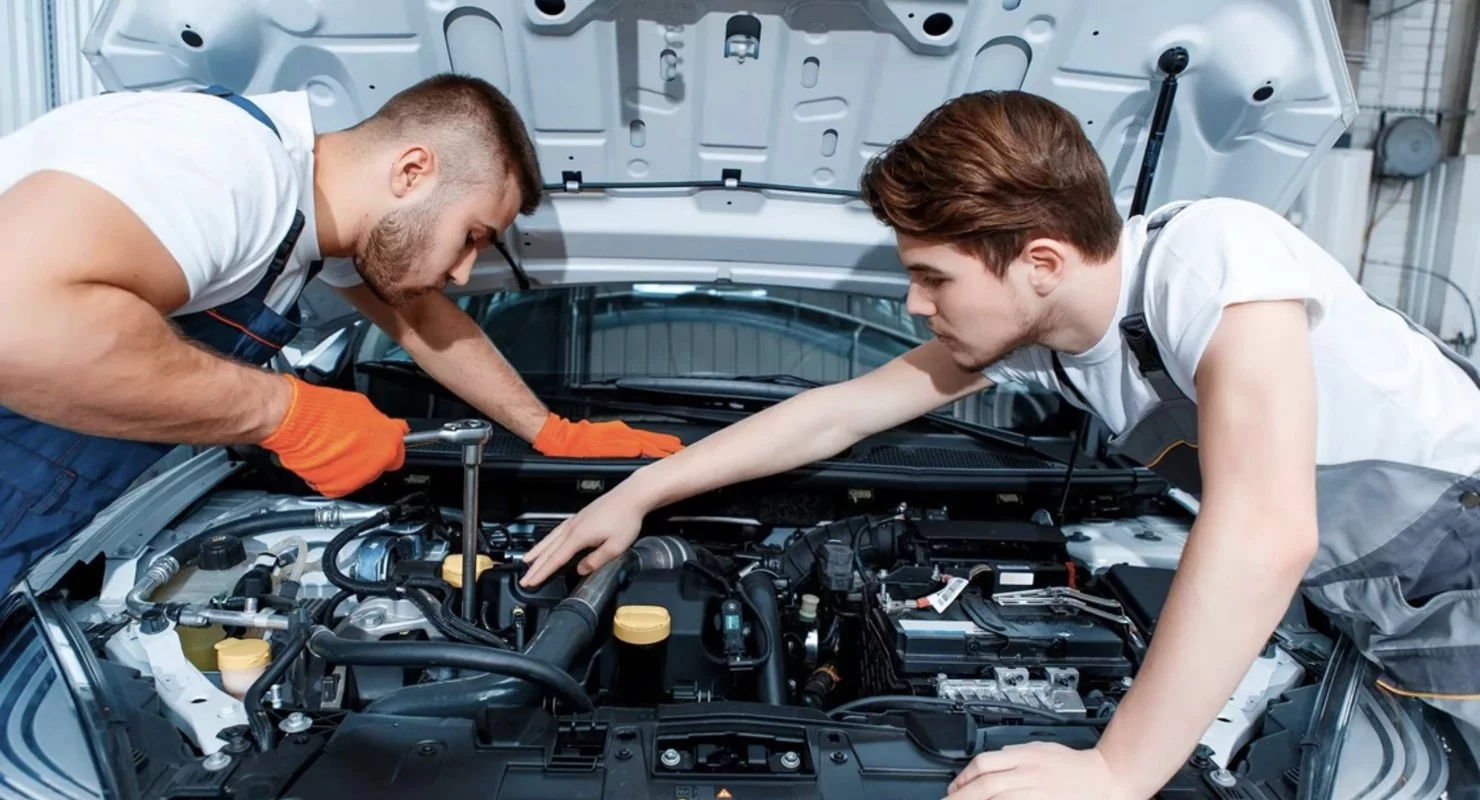In today’s world, vehicles are more than just Auto Electricians machines — they are sophisticated pieces of technology integrated with complex electrical and electronic systems. From advanced infotainment systems to automated driver assistance and engine control units, the role of electricity in modern cars is undeniable. At the heart of this intricate web of electronics is the auto electrician, a specialized professional who ensures that every wire, circuit, and component works flawlessly. This article delves into the world of auto electricians, exploring their responsibilities, required skills, training, and their crucial role in the automotive industry.
Who Are Auto Electricians?
Auto electricians are technicians who specialize in the electrical systems of vehicles. Unlike general mechanics, who may focus on engines, brakes, or suspensions, auto electricians concentrate exclusively on diagnosing, repairing, and maintaining a vehicle’s electronic and electrical components.
With the increasing complexity of vehicle systems, auto electricians are now more essential than ever. Whether it’s fixing a faulty alternator, installing a new GPS tracker, or programming a car’s electronic control unit (ECU), these professionals handle it all.
Core Responsibilities of an Auto Electrician
Auto electricians handle a wide variety of tasks. Some of their key responsibilities include:
1. Diagnosing Electrical Faults
Modern vehicles have extensive electronic systems, and identifying where something has gone wrong often requires specialized tools and expertise. Auto electricians use diagnostic software and tools like multimeters, oscilloscopes, and scan tools to pinpoint issues.
2. Repairing and Replacing Faulty Components
From broken wiring harnesses to damaged sensors, auto electricians repair or replace components as needed. This may include fuses, relays, electric windows, dashboard displays, and lighting systems.
3. Installing New Electronic Systems
Whether it’s a new audio system, security alarms, reversing cameras, or auxiliary lighting, auto electricians install aftermarket electronic components in both new and old vehicles.
4. Working on Vehicle Computers
Many modern cars feature multiple onboard computers, including ECUs, transmission control modules (TCM), and body control modules (BCM). Auto electricians reprogram, reset, and troubleshoot these systems.
5. Battery and Charging System Services
They also inspect and service alternators, starter motors, and batteries — key components in keeping the vehicle running efficiently.
Why Auto Electricians Are Crucial Today
With the rise of electric and hybrid vehicles, the automotive landscape is rapidly changing. Electric vehicles (EVs) rely entirely on electrical systems for propulsion and control. This has placed auto electricians at the forefront of vehicle maintenance and development.
Some additional factors contributing to their rising importance include:
- Smart Technology Integration: With cars becoming smarter and more connected, new systems such as Bluetooth connectivity, autonomous driving features, and vehicle-to-infrastructure communication require advanced electrical knowledge.
- Safety Systems: Auto electricians work on essential safety systems such as airbags, anti-lock braking systems (ABS), and traction control — all of which are electronically controlled.
- Fuel Efficiency and Emissions Control: Many fuel-saving and emissions-reducing features, such as start-stop systems and electronic fuel injection, are governed by electronics.
Skills and Qualities of a Good Auto Electrician
To be successful, an auto electrician must possess a unique blend of technical and analytical skills. Key attributes include:
- Technical Knowledge: Understanding circuits, electrical theory, and vehicle wiring diagrams is fundamental.
- Problem-Solving Abilities: Diagnosing electrical faults requires analytical thinking and patience.
- Attention to Detail: A single misplaced wire can cause a system to fail.
- Communication Skills: They must explain issues clearly to customers and sometimes coordinate with other mechanics.
- Dexterity and Precision: Working with small, intricate parts and tight spaces requires a steady hand and good hand-eye coordination.
- Technological Aptitude: As vehicles continue to evolve, staying up-to-date with the latest diagnostic tools and automotive technology is essential.
Training and Qualifications
Most auto electricians begin their careers through apprenticeships or technical courses. In many countries, a diploma or certification in automotive electrical technology is required. Some common pathways include:
- Vocational Training: Technical schools or community colleges offer courses in auto electrical systems.
- Apprenticeships: Hands-on training under experienced professionals provides practical knowledge and experience.
- Certifications: In some regions, certifications such as ASE (Automotive Service Excellence) can boost career opportunities.
Ongoing education is vital due to the rapid technological advancements in the auto industry.
Tools of the Trade
Auto electricians rely on a range of specialized tools, including:
- Multimeters: For testing voltage, current, and resistance.
- Oscilloscopes: For analyzing waveforms and complex signals.
- Scan Tools/OBD-II Readers: For accessing diagnostic trouble codes from the vehicle’s onboard computer.
- Wire Strippers, Crimpers, and Soldering Irons: For modifying or repairing wiring.
- Battery Testers and Load Testers: For evaluating battery health and charging system performance.
Common Issues Handled by Auto Electricians
Auto electricians tackle a wide range of problems, including:
- Dead or faulty batteries
- Blown fuses or faulty relays
- Non-functioning lights (headlights, taillights, indicators)
- Central locking failures
- Faulty sensors or warning lights on the dashboard
- Electric window or mirror malfunctions
- Poor alternator output
- Malfunctioning ignition systems
They often collaborate with general mechanics to ensure a vehicle runs smoothly both mechanically and electronically.
Career Opportunities and Outlook
As more vehicles hit the road and car technology continues to evolve, the demand for skilled auto electricians is expected to rise. Career paths may include:
- Working in dealerships or independent garages
- Specializing in electric or hybrid vehicles
- Becoming mobile auto electricians offering on-site services
- Supervisory or managerial roles
- Starting their own auto electrical business
The increasing complexity of car electronics ensures that this career path offers stability, variety, and opportunities for growth.
Conclusion
Auto electricians may not always be in the spotlight, but they are absolutely vital in keeping our vehicles functional and safe. As automotive technology continues to evolve, their role becomes even more essential. Whether it’s diagnosing a faulty ECU or installing the latest in-car tech, auto electricians bridge the gap between mechanical engineering and modern-day computing. For those with a passion for cars and electronics, it’s a rewarding career that combines hands-on skills with cutting-edge innovation.
FAQs
Q1: What is the difference between a mechanic and an auto electrician?
A: A mechanic primarily works on mechanical components like engines and brakes, while an auto electrician focuses on the vehicle’s electrical and electronic systems.
Q2: Do auto electricians work on electric vehicles (EVs)?
A: Yes, they are especially crucial for EVs, which rely entirely on electrical systems for operation.
Q3: How long does it take to become an auto electrician?
A: It typically takes 2–4 years through apprenticeships or technical training to become a qualified auto electrician.
Q4: What are common signs of electrical problems in a car?
A: Dim or flickering lights, warning lights on the dashboard, power windows not working, and difficulty starting the vehicle can all indicate electrical issues.
Q5: Can auto electricians work independently?
A: Yes, many experienced auto electricians run their own businesses or offer mobile services.











